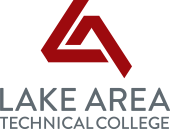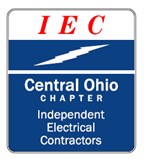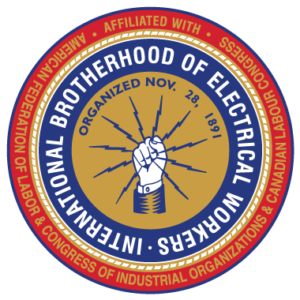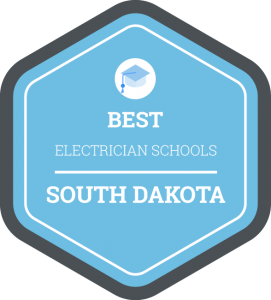If you live in South Dakota and want to start a career in the electrical field, this page will provide information about the top schools that offer electrician training programs in your region.
Program length varies depending on the school and the credential it leads to.
Certificate and diploma programs are usually less than one year in length while associate degrees can be earned in two years.
Apprenticeships that consist of four or five years of on-the-job and classroom training are also available.
We invite you to read our list, and depending on your budget, career expectations, and learning style, choose the program that best meets your needs.
1Southeast Technical College

About the School
Southeast Technical College offers more than 65 pathways in a variety of innovative fields.
The two-year college provides career-focused programs that are developed with industry leaders in the area.
Students learn from faculty that have real-world experience, thus getting ready for a new career in two years or less.
Tuition at Southeast Technical College is $124 per credit hour.
Additional fees bring the total cost per credit to $255.
Southeast Technical College is accredited by the Higher Learning Commission.
Courses Offered
The college provides an Electrician pathway that includes 69 credits.
Students enrolled in the Electrician program learn how to install, maintain and repair electrical power and communications equipment, as well as lighting and control systems.
The curriculum includes courses on:
- Electrical Communications Requirement
- Student Success Seminar
- Fundamentals of Electricity
- Wiring Essentials
- National Electrical Code
- Wiring Essentials
- Inductive Circuits
- Electrical & Industry Safety
- And more
Contact Information
- Address: 2320 N Career Ave, Sioux Falls, SD 57107
- Phone: 605-367-7624
- Website: https://www.southeasttech.edu
2Mitchell Tech

About the School
Mitchell Tech is a community college that prepares students for careers in a wide range of industries.
Tuition at Mitchell Tech is $124 per credit hour.
Additional costs include a $36 per credit state facility fee, $6 for state M&R fee, a department fee that ranges from $30-$45 per credit, and a $32 per credit institutional fee.
Mitchell Tech is accredited by the Higher Learning Commission.
Courses Offered
The college provides a Construction & Manufacturing Technologies pathway that includes a program in Electrical Construction and Maintenance.
This program prepares students for employment as apprentice electricians, residential electricians, industrial electricians, or estimators.
The courses included in this curriculum provide students with basic training in the maintenance and wiring of residential and commercial buildings.
Through a combination of theory and practical applications, students learn the skills needed for employment.
The curriculum also covers courses on fiber optic and data cabling, as well as programmable logic controls.
Students also review their basic math skills and learn about tools, materials, basic electrical resistive theory, circuit construction, troubleshooting, and data cabling.
Contact Information
- Address: 1800 East Spruce Street, Mitchell, South Dakota 57301
- Phone: 800.684.1969
- Website: https://www.mitchelltech.edu
3Lake Area Technical College

About the School
Lake Area Technical College provides 31 academic programs in high-demand fields.
The college’s catalog also includes 13 hybrid e-degrees that blend online and on-campus learning.
Lake Area Technical College is accredited by the Higher Learning Commission.
Courses Offered
The college provides an Electronic Systems Technology pathway with two options:
- Biomedical Technician Option
- Electronic Systems Hybrid E-degree option
Energy Operations and Energy Technology programs are also available at the college.
The Energy Technology program is 20-months-long and combines classroom with hands-on lab training.
The program also provides an internship.
Energy Technology students learn mechanical maintenance, repair and overhaul, alignment techniques, metallurgy, thermodynamics, and other related skills.
The Energy Operations pathway is also 20 months long and teaches students how to monitor and control power and process plant production and how to isolate and identify problems in the energy industry.
The college’s catalog also includes an Electric Vehicles Option for Automotive grads.
This program can be completed in 18 months and allows students to spend time in a 27,900-square-foot auto repair shop about 75 percent of the time.
Contact Information
- Address: 1201 Arrow Ave. Watertown, SD 57201
- Phone: 605-882-5284
- Website: https://www.lakeareatech.edu
4Electrical Training Center

About the School
The Electrical Training Center serves the electrical training needs of electricians in Wyoming, Montana, Nebraska, South Dakota, and many other states.
Classes are available for different experience levels: from First Year Apprentices to Master Electricians.
Among many other courses, the center offers a four-month apprentice training program that can be used as an Electrical Apprenticeship educational course, a source of education for working apprentices, or as a pre-employment class.
This is a full-time daytime program that allows students to spend the day studying the topics that will prepare them for employment.
Students receive a completion certificate after each level is completed.
The center also provides Construction Safety and Health OSHA 10-hour Training.
Four years of on-the-job work experience as an Apprentice Electrician are also required before being qualified to take the Journeymen State license exam in South Dakota.
Contact Information
- Address: 320 East Blvd North, Rapid City, SD 57701
- Phone: 605-342-9088
- Website: https://aetech.com
5Western Dakota Technical College

About the School
Western Dakota Technical College offers educational programs for high school graduates, and adults looking to change careers, or upgrade their skills.
On-campus tuition is $286 per credit hour.
Western Dakota Technical College is accredited by the Higher Learning Commission.
Courses Offered
The college’s catalog includes an Electrical Trades program designed to be completed in four semesters.
The program is hands-on to prepare students for real-life situations.
Students spend most of their time learning by doing.
The first year of training focuses on providing students with a solid foundation in electronics and electrical technology.
The second year of study focuses mostly on advanced electrical trades skills.
Applicants need to complete the ACCUPLACER test.
An official copy of a high school diploma transcript or GED scores is also required as well as Immunization Records that verify two doses of MMR vaccinations.
Contact Information
- Address: 800 Mickelson Dr. Rapid City SD 57703
- Phone: (605) 718-2565
- Website: https://www.wdt.edu
6Independent Electrical Contractors Dakotas

About the School
The Independent Electrical Contractors Dakotas provides training for South Dakota electricians.
Training is available in the following fields:
- Residential Wiring
- Commercial and Industrial
- NEC Code Training
- Safety Training
Independent Electrical Contractors Dakotas is approved by the South Dakota Electrical Commission.
Courses Offered
The apprenticeship program offered by IEC is a four-year curriculum broken up into two semesters per year.
Students complete at least 144 hours of training per year.
The training includes lectures, demonstrations, labs, and homework.
The first year of training covers the basics, electrical theory, and residential wiring.
During the second year of training, students learn about the NEC code book, service calculations, theory, transformers, non-linear loads, AC and DC motors, and more.
Third-year apprentices learn about blueprint reading, OSHA and NFPA, grounding and bonding, test instruments, and more.
The fourth year covers topics such as distribution systems, solid-state relays, timers, counters and sensors, cables, and underground installations, among many other subjects.
Contact Information
- Address: 102 N. Krohn Place Ste 214, Sioux Falls, SD 57103
- Phone: 605-271-0395
- Website: https://www.iecdakotas.com
7International Brotherhood of Electrical Workers

About the School
With 725,000 members, the International Brotherhood of Electrical Workers is the largest organization of electrical workers in North America.
The organization offers fair wages, health insurance, pensions, retirement income, paid vacation, and holidays.
Its members work in construction, utilities, manufacturing, telecommunication, broadcasting, and many other industries.
The organization serves South Dakota and Southwestern Minnesota since 1916.
Courses Offered
The International Brotherhood of Electrical Workers is also the largest private-sector trainer of electrical workers in North America.
IBEW Local 426 is located in Sioux Falls.
Apprenticeships and ongoing educational programs are available.
The programs combine on-the-job training with classroom instruction.
During this time, trainees learn about the most advanced technologies in this field, including renewable energy and energy efficiency.
Apprentices earn a salary during the training period.
The salary increases gradually as students advance in their training.
On-going training programs for workers in utilities, telecommunications, manufacturing, and other sectors who want to keep up with the latest advancements in their field are also available.
Contact Information
- Address: 3725 N 4th Ave, Sioux Falls, SD 57104
- Phone: 605.336.0370
- Website: http://www.ibewsd.com
8South Dakota State University

About the School
South Dakota State University provides nearly 200 program choices to help students follow the career path of their choice.
Undergraduate, transfer, online, continuing education, and dual credit programs are available.
The college’s catalog includes an Electrical Engineering Bachelor of Science.
Tuition and fees at South Dakota State University sum up to $9,299 per year for South Dakota residents who take 15 credits per term.
Some courses have additional fees that may increase the total estimated cost of training.
Financial aid is available for students who qualify.
Courses Offered
Electrical Engineering students take classes such as:
- Introduction to Electrical Engineering Lab
- Linear Circuits
- Energy Conversion
- Digital Systems
- Electronic Materials
- Linear Control Systems
- Signals and Systems
- Electronics
- Electronic Devices
- Electromagnetics
- And more
The program requires that students complete 33 credit hours in general education courses, 69 credit hours in major requirements, and 28 credit hours in supporting coursework.
A Master of Science in Electrical Engineering is also available at the university.
This program includes a variety of courses in Electrical Engineering areas such as alternative energy, nanotechnology, photovoltaic devices and systems, and signal and image processing.
Contact Information
- Address: 1451 Stadium Rd, Brookings, SD 57007
- Phone: 800-952-3541
- Website: https://www.sdstate.edu
9South Dakota Mines
About the School
South Dakota School of Mines and Technology is a STEM university that allows students to jump into the major of their choice from day one.
The university provides undergraduate and graduate programs in a variety of academic areas.
Tuition is $473.30 per credit for South Dakota residents.
South Dakota Mines is accredited by the Higher Learning Commission.
Financial aid and scholarships are available for students who qualify.
Courses Offered
Among many other programs, an Electrical Engineering Degree is included in the South Dakota Mines catalog.
This program provides students with an understanding of electrical engineering applications and the design of systems that incorporate electricity, electronics, and electromagnetism.
The program focuses on engineering as it is applied to circuits, electronics, electromagnetics, controls, materials, signals, power, and communications.
Students can participate in designing and building projects such as drones, race cars, autonomous lunar robots, or Baja vehicles.
The Electrical Engineering curriculum covers classes on:
- Introduction to Digital Systems
- Test-Driven Software Development
- Circuits
- Statics and Dynamics
- Electronic Sensors and Actuators
- Signals and Systems
- Control Systems
- Applied Electromagnetics
- And many other subjects
Contact Information
- Address: 501 E. Saint Joseph St. Rapid City, SD 57701
- Phone: 605-394-2511
- Website: https://www.sdsmt.edu
10North Dakota State College of Science

About the School
Located in the neighboring state of North Dakota, North Dakota State College of Science provides educational opportunities in a variety of academic fields.
North Dakota State College of Science is accredited by the Higher Learning Commission.
Courses offered
The college’s Manufacturing cluster includes an Industrial Electrical program available at the Wahpeton campus.
This program leads to an Associate in Applied Science Degree.
The curriculum is designed to prepare students for employment in the industrial sector of the electrical industry.
The college has seven dedicated laboratories where students gain hands-on experience using AutoCAD drawing, advanced electrical test equipment, electric motors, magnetic motor starters, programmable controllers, electronic devices, and instrumentation.
Students learn about automated industrial controls, large motors, and the electronic devices that control them.
The Industrial Electrical curriculum includes classes on:
- Direct Current Fundamentals
- Electric Code Safety
- Basic Wiring Lab
- Three-Phase Electrical Systems
- Electrical Design and Lighting
- Basic Motor Controls
- Programmable Logic Controllers
- And more
Students enrolled in this program need 73 credits in total for graduation.
Applicants need a high school diploma or equivalent to qualify for admission.
Tuition is $169.79 for U.S. residents.
Contact Information
- Address: 800 6th Street N, Wahpeton, ND 58076
- Phone: 800-342-4325
- Website: https://www.ndscs.edu
Regional Salary in South Dakota
| Region | Employed | Avg. Annual Salary | Avg. Hourly Pay | Top 10% Annual Salary | Bottom 10% Annual Salary |
|---|---|---|---|---|---|
| Rapid City, SD | 470 | $54,770 | $26.33 | $72,790 | $38,850 |
| Sioux Falls, SD | 1,120 | $57,360 | $27.58 | $74,120 | $39,690 |
* Employment conditions in your area may vary.
Final Thoughts
Now that you have read our list of best electrician schools in South Dakota, the next step is to continue the research and apply for the program that best meets your needs.
Make sure you take into account all the relevant factors before making this decision and that the school you choose is a trustworthy institution.






